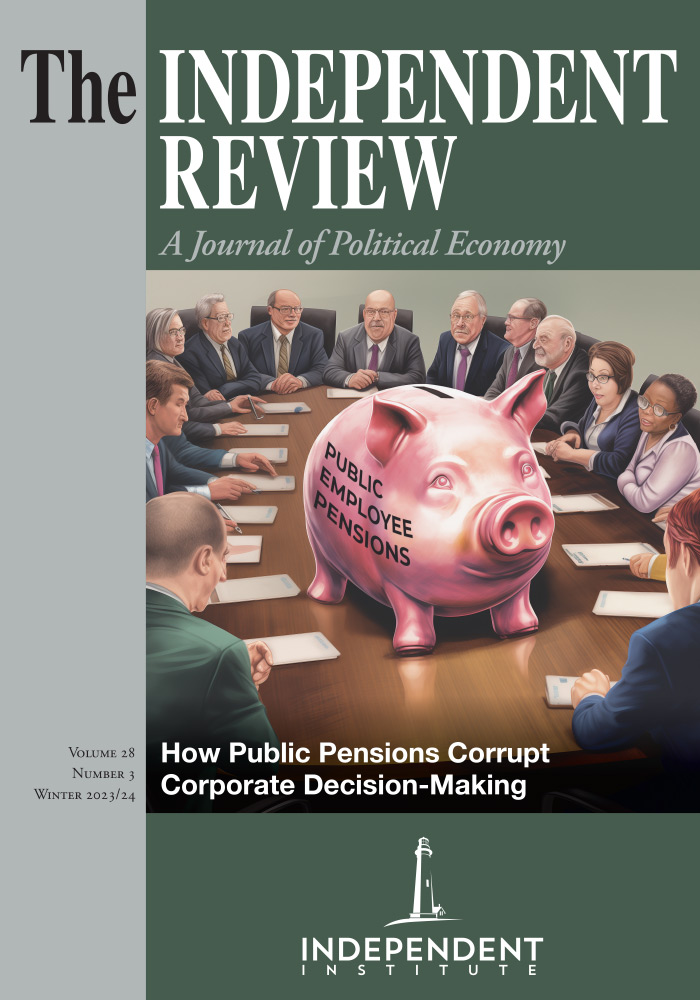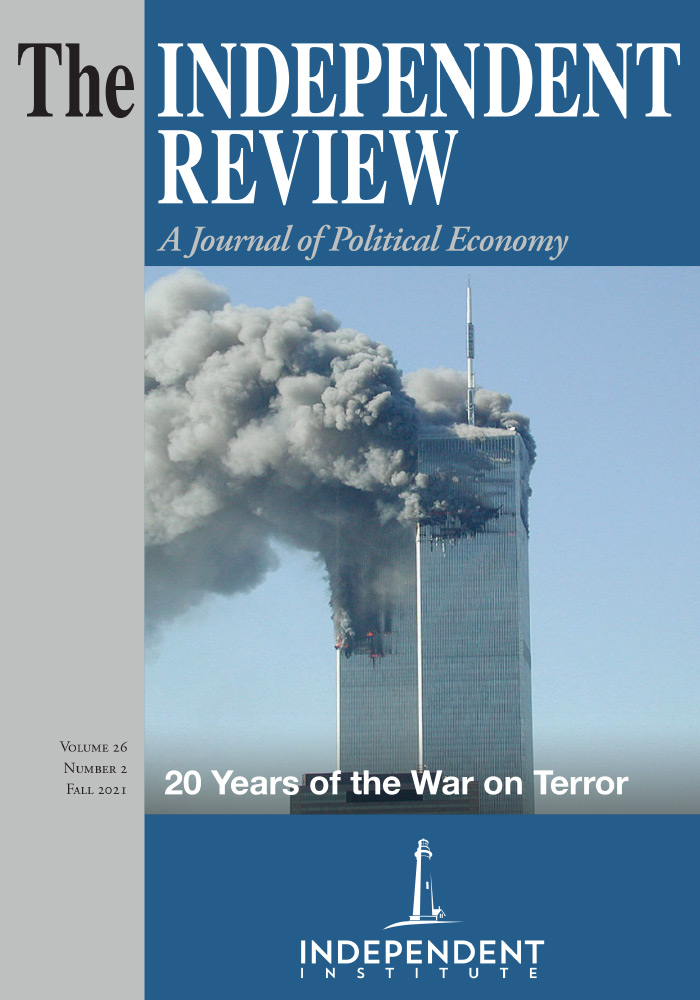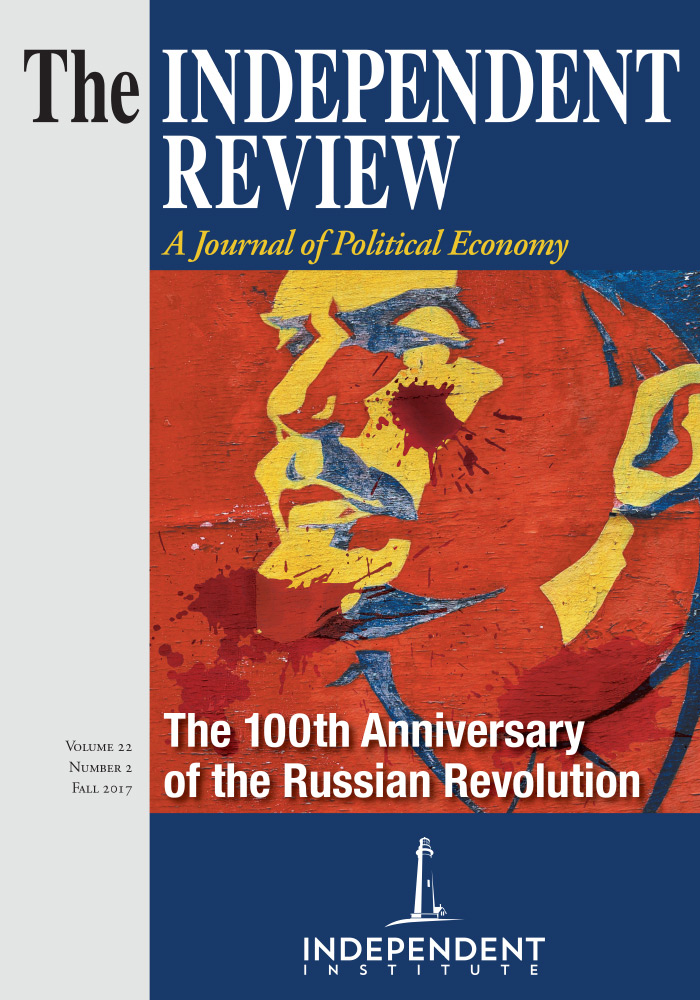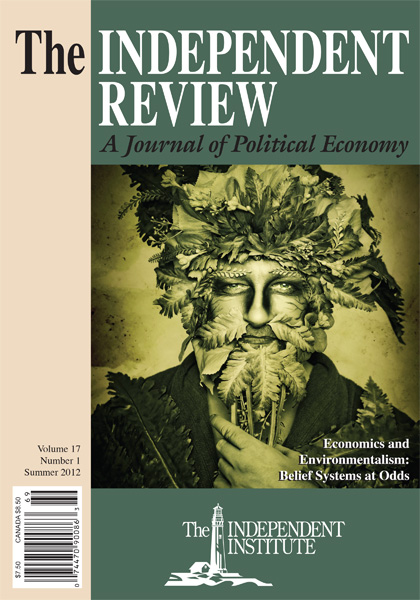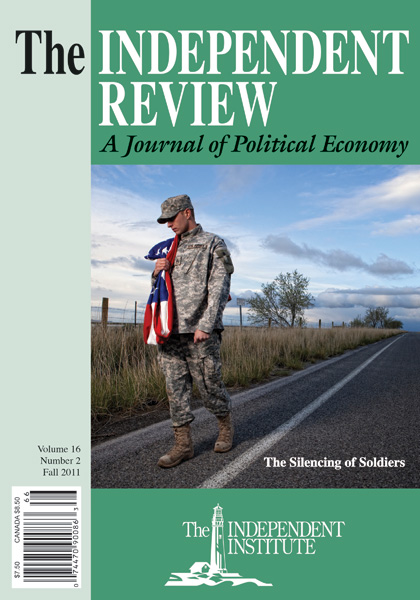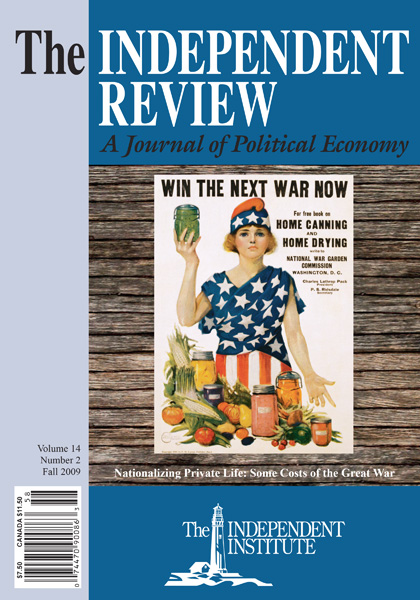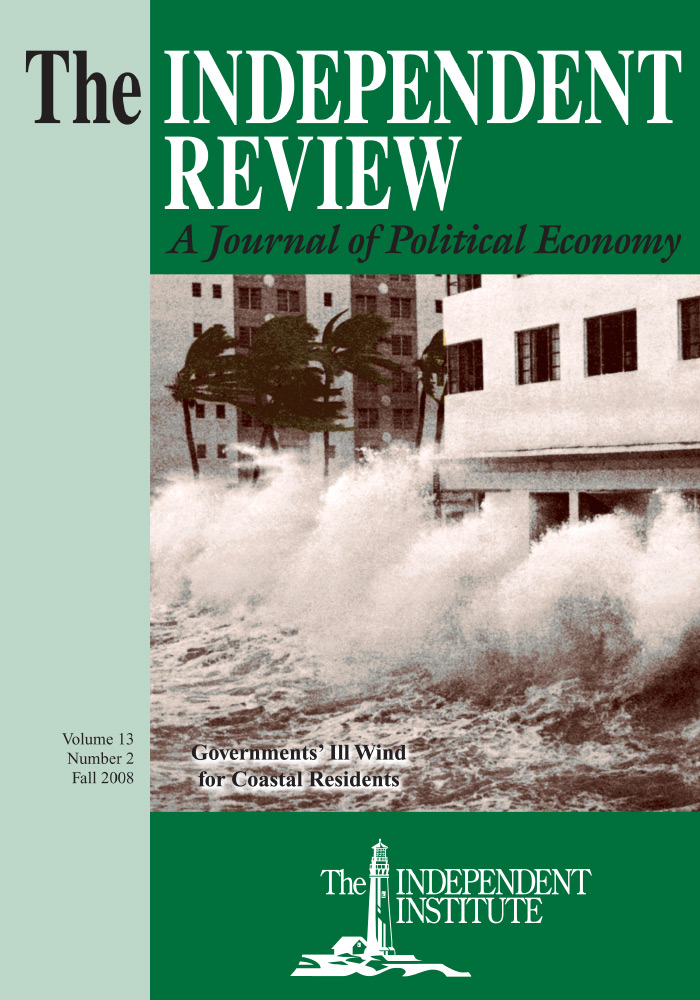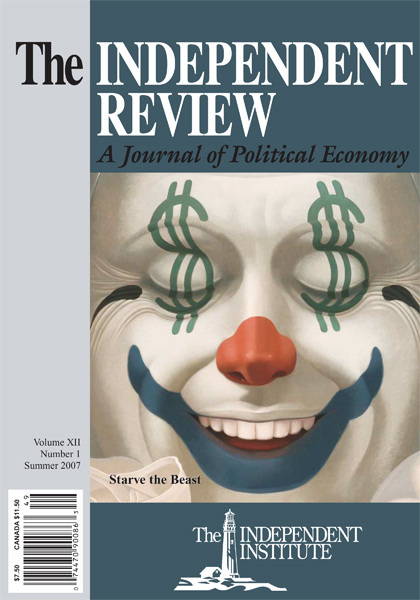Anyone launching a new quarterly journal in 1996 owes the world an explanation. Obviously, readers face no shortage of periodicals, and some of the existing ones are very good. Nonetheless, not every valuable niche has been filled; hence The Independent Review (TIR).
TIR will present articles, special features, and reviews that deal with political economy, broadly construed. Writing that would interest only economists or only philosophers or only historians—indeed work that would interest only the practitioners of any academically defined scientific or humanistic specialty—will not appear in this journal. Rather, I intend to feature writing that crosses the boundaries of a variety of disciplines, including all the social sciences, philosophy, history, law, and related fields. Although it will serve scholars and comply with strict scholarly standards, The Independent Review will differ from such journals as The American Economic Review and The American Political Science Review. The main purpose here is not to develop a particular discipline but to advance the reader’s understanding of the multifaceted reality to which the term “political economy” refers.
Highly formal and technically challenging work will not appear in TIR. Heavily mathematical forms of exposition have become de rigueur in economics and increasingly in political science. Other fields, such as philosophy, have their own ways of excluding strangers from the conversation. Good arguments can be made for these expositional conventions. But whatever the merits of esoteric forms of communication in the various disciplines, my aims as editor dictate that the common language of this journal, as a rule, must be English. I intend to reject the work of writers who cannot express their ideas clearly. Those who write with vigor, wit, and flair will be received with open arms.
Because The Independent Review will eschew arcane or ponderous writing, it should appeal to students as well as teachers, generalists as well as specialists, lay persons as well as professionals. Political economy embraces a great diversity of topics; TIR’s intended audience is equally diverse. Although political economy comprises fundamentally important issues, the analysis, interpretation, and evaluation of these issues need not be hard to swallow. When Paul Samuelson published his Foundations of Economic Analysis in 1947, he made his epigraph Willard Gibbs’s declaration that “mathematics is a language.” Fifty years later, we have good reason to insist that English is a language, too.
Fortunately, for many purposes verbal expression is sufficient, and sometimes it is superior, as it accommodates a degree of nuance unachievable by alternative modes of expression. But certain types of analysis require more than words. Authors who make appropriate use of mathematical or statistical analysis—as opposed to just showing off—will find these pages accessible to them. For empirical articles, I shall give preference to expositions that display data or relations in an arresting visual manner. Sometimes a numerical table is essential, and a well-constructed graph goes a long way.
Although the style of exposition in The Independent Review will be simpler than that in many professional journals, readers will find that the articles, features, and reviews represent scholarship of the highest caliber. TIR is fortunate to have outstanding scholars serving as associate editors, contributing editors, and members of the board of advisors. In addition, excellent outside referees assist me in evaluating the papers submitted for publication, so first the authors and ultimately the readers receive the benefit of top-notch peer review.
Finally, something must be said about ideology. Political economy deals with issues that are infused with ideological presuppositions and implications—liberty, tyranny, democracy, collectivism, taxation, regulation, public policies of all sorts. For many journals, a paper’s ideological correctness is a sine qua non for acceptance. Even professional journals espousing “positive” or “value-free” analysis commonly fall short of their aspirations, as ideological assumptions creep unannounced into their pages.
In America during much of the twentieth century the ideology contained in works of political economy—often only between the lines—increasingly pulled the subject away from its moorings in the ideas of such classic figures as Montesquieu, Smith, Jefferson, Madison, and Tocqueville. More recently, however, political economists have begun to rediscover their lost heritage. Writers such as the Nobelists Friedrich Hayek and James Buchanan have inspired much important new research. Meanwhile, outside academia, developments such as the worldwide movement to privatize state enterprises and the abandonment of central planning in the socialist countries have given new urgency to the analysis of voluntary cooperation, free markets, and limited, constitutional government. The Independent Review will provide an outlet for writers engaged in the development and extension of this classic tradition. However, I do not plan to exclude papers written from alternative perspectives. Indeed, I hope to feature illuminating debates. In any event, many questions remain open; no one has all the answers. Normative as well as positive analyses will find a place here, and no attempt will be made to avoid the hard questions. On the contrary.
To the extent that I succeed in realizing our hopes for this journal, it will be filled with a broad range of excellent scholarship in an exceptionally interesting and widely appealing form. To readers who are tired of narrowly specialized, technically inaccessible, and often boring journals, to those who are hungry for something expositionally tastier yet still intellectually meaty, I welcome you to the first issue of what I expect to be an ongoing feast.
Bon appétit!
Robert Higgs
Research Director
The Independent Institute
| Other Independent Review articles by Robert Higgs | ||
| Fall 2019 | Pressure-Release Valves in Participatory Fascism | |
| Winter 2018/19 | Two Worlds: Politics and Everything Else | |
| Fall 2018 | Against the Whole Concept and Construction of the Balance of International Payments | |
| [View All (62)] | ||





